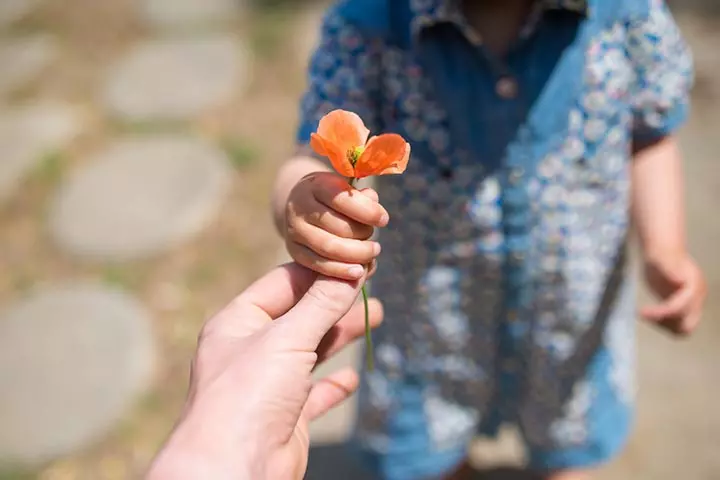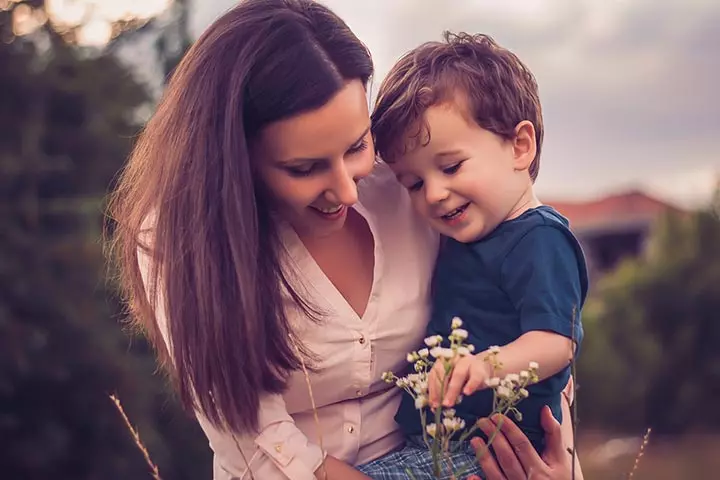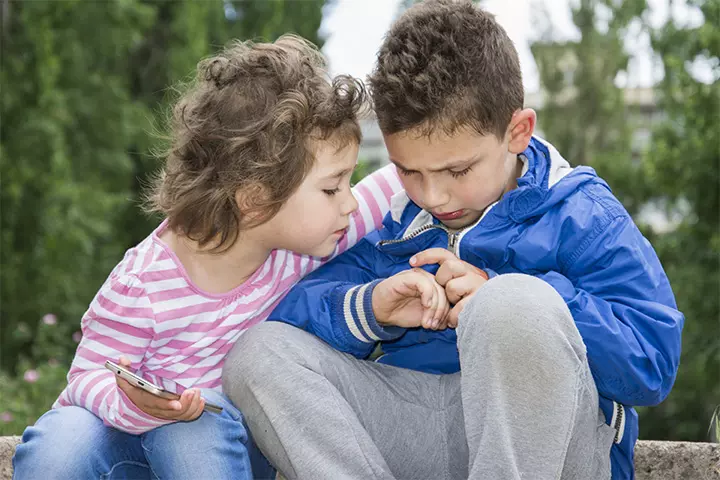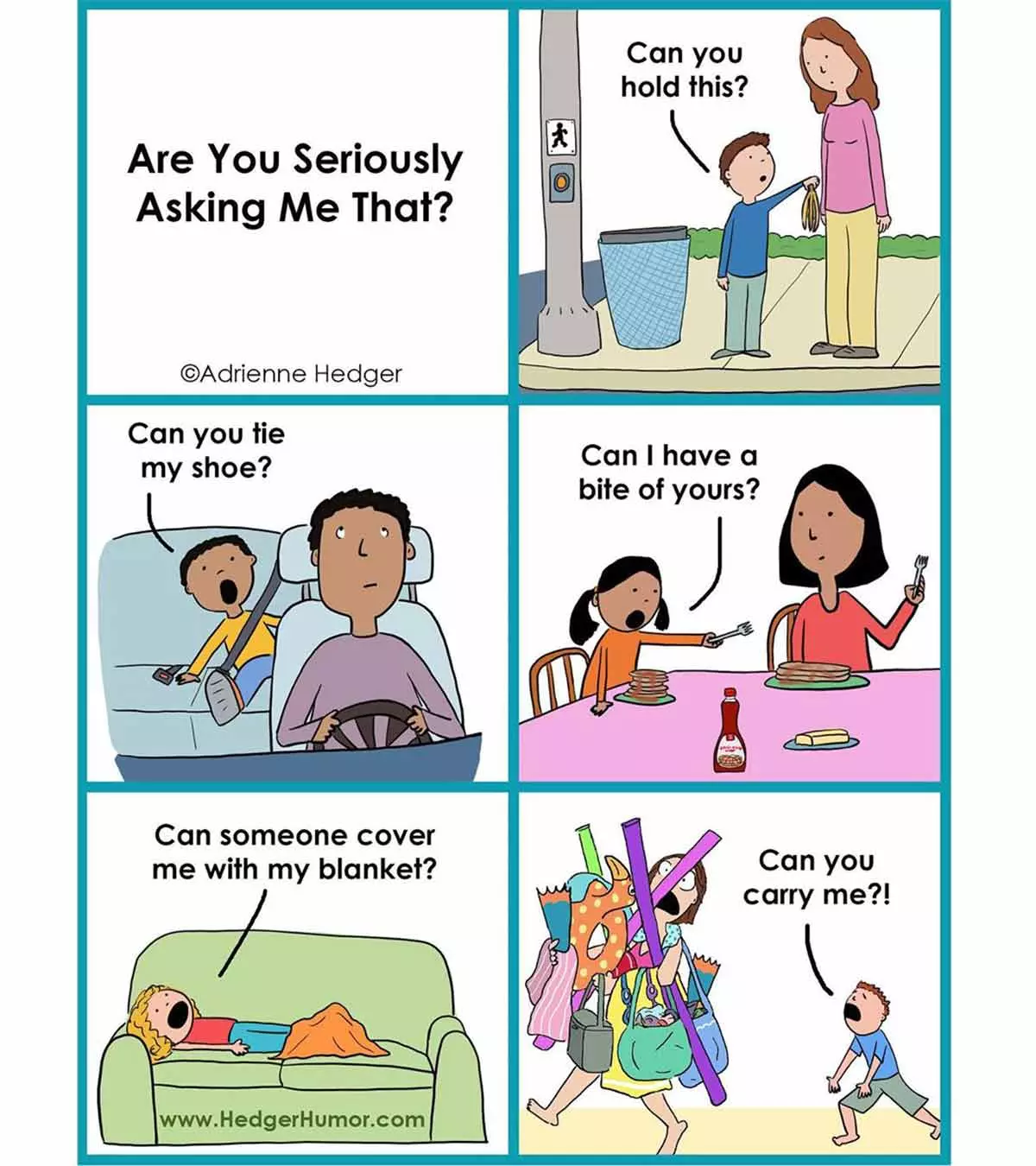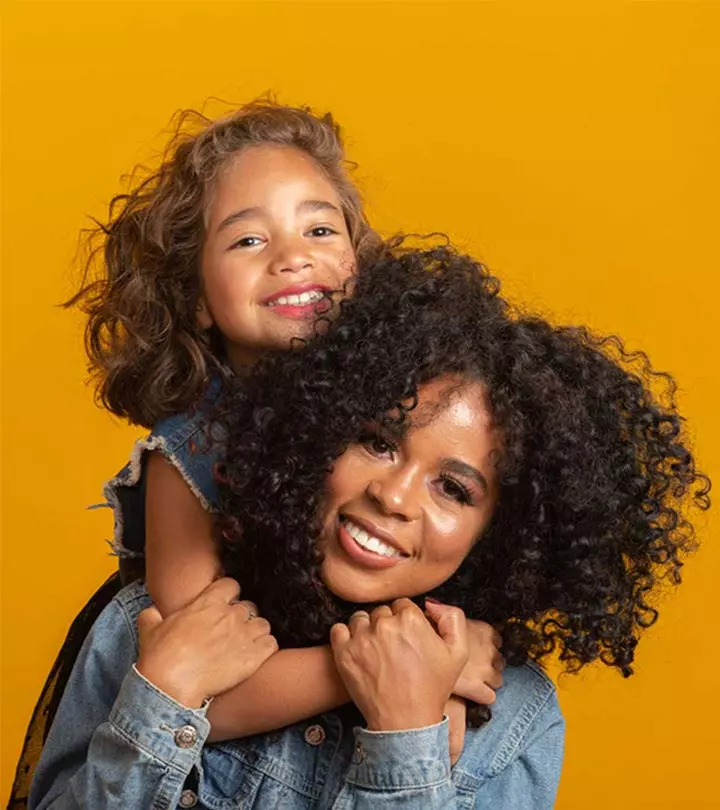

Image: Shutterstock
Kindness is perhaps the single most fundamental expression that encompasses all other notions of being humane. However we may choose to describe it, the essence remains the same — being considerate and acting beyond our selfish interests at all times.
Kids these days are at the forefront of social networking and are quick to absorb what they see and hear. Despite its advantages, the modern world driven by technology is harsh. It has increased the risk of our kids being at the receiving end of judgments, criticisms, and insensitive comments from anonymous sources (1). Hence, it’s furthermore crucial for parents to be vigilant about incorporating the value of kindness in their children.
Kids are wired to be compassionate (2). So, parents and caregivers can nurture kindness in them by taking advantage of this natural human instinct. Encouraging them to practice empathy in their everyday lives can positively impact young children to see the bigger picture rather than acting out of a selfish impulse. If you’re determined to foster kindness in your child, here are a few ways you can commit to raising a generation of good individuals:
1. Help Them Understand What Kindness Means
Image: Shutterstock
You could choose a variety of definitions to help your kids make sense of the virtue of kindness, but some concrete examples and actions can help in a significant way. For our kids, kindness could mean sharing a cookie with a needy person, lending a shoulder to a worried friend, helping an elderly cross the road, sharing their toys with the less fortunate, or volunteering for a cause they care about; to name a few. While toddlers focus on “me” and “mine”, you can try incorporating inclusive words like “we” and “us” to gently guide them to act with compassion (3).
2. Remind Them To Treat Others As They Would Like To Be Treated
Image: Shutterstock
Look for opportunities to speak to your kids about how it is like to be treated the way they treat others. Remind them how it feels to be in someone else’s shoes before they act hastily and hurt anyone. How would it feel if someone made fun of them or put them down before others? Or would it be nice if someone praised and complimented them for random acts of service?
Read stories that depict acts of kindness or play games where you give them caveats. Ask them to act out a scene about how they would behave if they were in a similar real-life situation. This will help trigger their active imagination, which will allow them to reflect. Over time, such thoughtful behaviors will become a reflex (4).
3. Model Kindness In Your Actions
Image: Shutterstock
While we cannot force kids to act in a certain way, we can demonstrate kind behaviors for our children to emulate. Kids are impressionable, eager to learn, and imitate whatever we do. No matter how small, kids will scrutinize, pick clues from the littlest gestures, and imitate them subconsciously. So, when you say “thank you” and “please”, help your neighbor, dole away some food to the less fortunate on the streets, invite a lonely acquaintance to share a holiday, or donate a sum of money to a charity, they pick up on those habits too. Always remember, how you treat your kids and yourself has a major impact on how they treat everyone around! (5).
4. Try Positive Reinforcement
Image: IStock
When you catch your kid actively engaging in doing something good, express your happiness and praise them. Instead of resorting to scolding or name-calling when they make mistakes, patiently teach them to do things differently. Show them what it is like to act in a manner that uplifts them and those around them.
Your kids look up to you for encouragement. So, to develop a positive habit in them and reinforce their good behaviors. Give them a hug, pat on the back, thumbs up, or participate in a special activity they cherish, like reading a book together. You could appreciate them by also simply cheering them on (6). When children engage in gracious little actions each day, it becomes part of their lifestyle. Those small micro-actions add up to something enormous eventually.
5. Teach Them To Apologize And Practice It Yourself
Image: IStock
It is all too human to make mistakes but accepting them and apologizing is another attribute of being kind. Remind yourself and your child that acting with empathy isn’t always easy. It’s normal to be stuck in a dilemma or be unaware of what could be the right thing to do. Sometimes, it’s scary to offer help to a stranger or stick up for a friend. But to be responsible for our fallacies or wrongful behaviors and quickly make amends is also a form of compassion. So, coach your kids to apologize sincerely. It’ll help them restore respect, repair broken cords and make peace (7). Don’t forget to apologize to your kids when you’re wrong too.
6. Practice Empathy
Image: Shutterstock
Empathy and kindness are qualities that go hand in hand. In fact, to exercise kindness, one has to have empathy in them. We often only think about ourselves, our own struggles, and hardships. But many times, other people around us might be going through much harder situations. Children, just like adults, need to learn to notice these things, so that they learn to accommodate others over their own priorities. This doesn’t mean they let others have their way over them. It’s just helping those in need when it’s in our power to.
In the long run, kindness benefits all. In a world that needs a culture of kindness more than ever before, you can do your bit by raising thoughtful kids who treat others with respect and love. Nothing can change overnight, but small steps can help avert the crisis that’s looming on the horizon. With these tips, you could help your kids grow up to become shining examples of this fundamental virtue. What other ways can you think of to teach your kids the value of being kind? Do share them with us in the comments below!
References
- Cyberbullying, Mental Health, and Violence in Adolescents and Associations With Sex and Race: Data From the 2015 Youth Risk Behavior Survey
https://journals.sagepub.com/doi/10.1177/2333794X19868887 - The Science of Empathy
https://journals.sagepub.com/doi/10.1177/2374373517699267 - A range of kindness activities boost happiness
https://www.tandfonline.com/doi/abs/10.1080/00224545.2018.1469461?journalCode=vsoc20 - The Kids’ Empathic Development Scale (KEDS): A multi-dimensional measure of empathy in primary school-aged children
https://bpspsychub.onlinelibrary.wiley.com/doi/10.1111/bjdp.12002 - Raising Caring, Respectful, Ethical Children
https://www.gse.harvard.edu/sites/default/files/parent_ethical_kids_tips_.pdf - Positive Reinforcement
https://idp.springer.com/authorize?response_type=cookie&client_id=springerlink&redirect_uri=https%3A%2F%2Flink.springer.com%2Freferenceworkentry%2F10.1007%2F978-1-4419-1698-3_130 - The Power of Apologies
https://hms.harvard.edu/sites/default/files/Departments/Ombuds%20Office/files/M.Wagner.ColumbiaUniversity.OmbudsOffice.ThePowerofApologies.pdf
Community Experiences
Join the conversation and become a part of our nurturing community! Share your stories, experiences, and insights to connect with fellow parents.

